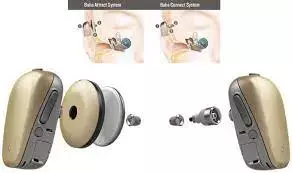- Home
- Medical news & Guidelines
- Anesthesiology
- Cardiology and CTVS
- Critical Care
- Dentistry
- Dermatology
- Diabetes and Endocrinology
- ENT
- Gastroenterology
- Medicine
- Nephrology
- Neurology
- Obstretics-Gynaecology
- Oncology
- Ophthalmology
- Orthopaedics
- Pediatrics-Neonatology
- Psychiatry
- Pulmonology
- Radiology
- Surgery
- Urology
- Laboratory Medicine
- Diet
- Nursing
- Paramedical
- Physiotherapy
- Health news
- Fact Check
- Bone Health Fact Check
- Brain Health Fact Check
- Cancer Related Fact Check
- Child Care Fact Check
- Dental and oral health fact check
- Diabetes and metabolic health fact check
- Diet and Nutrition Fact Check
- Eye and ENT Care Fact Check
- Fitness fact check
- Gut health fact check
- Heart health fact check
- Kidney health fact check
- Medical education fact check
- Men's health fact check
- Respiratory fact check
- Skin and hair care fact check
- Vaccine and Immunization fact check
- Women's health fact check
- AYUSH
- State News
- Andaman and Nicobar Islands
- Andhra Pradesh
- Arunachal Pradesh
- Assam
- Bihar
- Chandigarh
- Chattisgarh
- Dadra and Nagar Haveli
- Daman and Diu
- Delhi
- Goa
- Gujarat
- Haryana
- Himachal Pradesh
- Jammu & Kashmir
- Jharkhand
- Karnataka
- Kerala
- Ladakh
- Lakshadweep
- Madhya Pradesh
- Maharashtra
- Manipur
- Meghalaya
- Mizoram
- Nagaland
- Odisha
- Puducherry
- Punjab
- Rajasthan
- Sikkim
- Tamil Nadu
- Telangana
- Tripura
- Uttar Pradesh
- Uttrakhand
- West Bengal
- Medical Education
- Industry
Percutaneous Implantable Devices tied to superior Audiometric Outcomes in Congenital Aural Atresia

Percutaneous Implantable Devices tied to superior Audiometric Outcomes in Congenital Aural Atresia suggests a new study published in the Otology & Neurotology. The researchers found that in patients with congenital aural atresia, those receiving implantable percutaneous bone-conduction devices (pBCDs) exhibited significantly superior audiometric outcomes.
Researchers conducted a study to compare audiometric outcomes, complications, and revisions required for percutaneous (pBCD) versus transcutaneous (tBCD) implantable bone-conduction devices for the treatment of hearing loss associated with congenital aural atresia (CAA). A systematic review was performed searching for English language articles from inception to December 14, 2022. Studies reporting audiometric outcomes or complications for either percutaneous or transcutaneous for treatment of congenital aural atresia were selected for inclusion. A meta-analysis of single means and meta-analysis of proportions with comparison (Δ) of weighted proportions was conducted. Results: A total of 56 articles with 756 patients were selected for inclusion. One hundred ninety patients were implanted with percutaneous, whereas the remaining 566 were implanted with transcutaneous. Mean pure-tone audiometry improvement in the pBCD group was significantly higher than in the transcutaneous group. The average improvement in speech reception threshold was 38.6 ± 2.5 dB in the percutaneous group as compared with 32.7 ± 1.6 dB in the transcutaneous group. Overall complication rates for patients implanted with percutaneous and transcutaneous were 29.0% and 9.4%, respectively. Patients with congenital aural atresia implanted with percutaneous had significantly better audiometric outcomes than those implanted with transcutaneous. However, complication rates were significantly higher among the percutaneous group.
Dr. Shravani Dali has completed her BDS from Pravara institute of medical sciences, loni. Following which she extensively worked in the healthcare sector for 2+ years. She has been actively involved in writing blogs in field of health and wellness. Currently she is pursuing her Masters of public health-health administration from Tata institute of social sciences. She can be contacted at editorial@medicaldialogues.in.
Dr Kamal Kant Kohli-MBBS, DTCD- a chest specialist with more than 30 years of practice and a flair for writing clinical articles, Dr Kamal Kant Kohli joined Medical Dialogues as a Chief Editor of Medical News. Besides writing articles, as an editor, he proofreads and verifies all the medical content published on Medical Dialogues including those coming from journals, studies,medical conferences,guidelines etc. Email: drkohli@medicaldialogues.in. Contact no. 011-43720751


